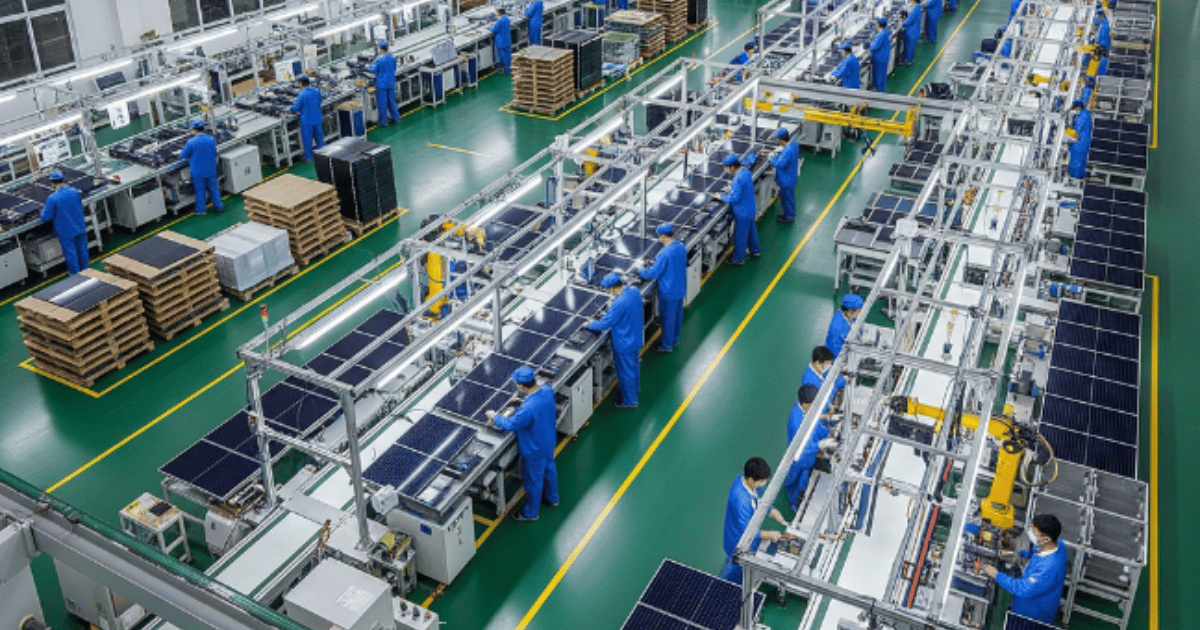- Renewables Rising
- Posts
- How the continent benefits from US-China trade wars
How the continent benefits from US-China trade wars

From the newsletter
African countries are capitalising on US tariffs on China by attracting Chinese firms to establish solar manufacturing bases on the continent. This week, Chinese investors announced major projects in North Africa, including a factory to produce 4 GW of solar cells and panels and 1 GWh of energy storage systems, as well as a solar glass plant in Algeria.
Since the start of the year, several solar cell and panel production facilities totalling more than 15 GW have been announced, most of them in Egypt, which benefits from a relatively low tariff of 10% and enjoys tariff-free access to the wider EU market.
However, African countries must be cautious. China will prioritise its own interests, and any deals should be negotiated carefully to ensure benefits in terms of job creation and the utilisation of locally produced products.
More details
The Egyptian project, named the “Atom Solar Egypt” facility, will cost around $220 million. It plans to split production with 2 GW of solar cells primarily for export, 2 GW of solar panels for both local and export markets, and a 1 GWh energy storage system factory. The market for the storage systems wasn't specified, but it's likely for both local and export use, given Egypt's increasing number of projects that include energy storage. The panel production will rely heavily on local aluminium and glass.
In Algeria, China's Kibing Group, a leading manufacturer of advanced glass, plans to set up a solar glass plant with an annual production capacity of 1.53 million tonnes. This will be built alongside a silica sand processing facility capable of producing 1.08 million tonnes per year. The company also announced a plan to build a solar glass plant in Egypt at an estimated cost of $685 million. 80% of that output is targeted for export, with the remaining 20% for local consumption.
Africa remains heavily reliant on Chinese imports for its solar panels due to limited domestic manufacturing capacity. Only a few countries have well-established manufacturing capabilities, and these have largely focused on assembly rather than producing components from scratch. Cost and technology are key factors driving this reliance on Chinese imports. However, Chinese companies are now increasing their investments in Africa as they are impacted by tariffs from the USA.
Now, Chinese companies are moving outside of China to establish new manufacturing bases. African countries, particularly in the north, have capitalised on this shift, with Chinese companies setting up in Egypt, Morocco, Tunisia, and Algeria. They have also penetrated other African countries such as Nigeria and Ethiopia.
However, China still controls the supply chains that are crucial for every stage of production, from raw materials like polysilicon to finished panels and batteries. Africa's entry into manufacturing means little if it does not control this supply chain. This could leave the continent subject to the same vulnerabilities it faces with fossil fuels. The ideal solution would be for African countries, which are custodians of many of these raw materials, to step up and supply the manufacturing plants. However, this is challenging, as Africa currently lacks the technology to refine these minerals.
If Africa decides to pursue a go-it-alone strategy, it would need to heavily subsidise and incentivise local production to compete with Chinese giants. This is difficult given the financial challenges faced by many African nations. The best path forward is to negotiate deals that ensure a significant portion of the solar products from these new local plants remains for domestic consumption. If Africa focuses solely on exports, it risks supporting other countries’ energy goals while remaining in a power deficit itself.
Our take
Even with new manufacturing plants, a major vulnerability remains if African countries lack control over the supply chain for raw materials. African countries need to invest in their own refining capabilities to avoid becoming dependent on China for the very materials they own.
The partnerships with Chinese firms present an opportunity for skill development. Local workers can gain expertise and help build a foundation for future, more independent growth.
Africa must negotiate agreements that guarantee a share of locally produced solar panels and storage systems are retained for domestic use. Otherwise, plants risk becoming export hubs that do little to close Africa’s own electrification gap.